#accriverbats
Text

Presenting the Honors Student Organization Officers for the 2024-2025 School Year! 🎉
President: Bryce Bakman
Vice-President: Parker Garcia
Secretary: Mirene Vicuna Quezada
Treasurer: Genevieve Kent Elbaor
Sustainability: Stephen Jarvis
Social Media: Alyssa Walker
🦇💜
0 notes
Photo

We got a visit from ACC’s own mascot, R.B. the Riverbat! Thanks for stopping by our Jewelry studios, RB! Always a pleasure. 😊 🦇💍🦇 #Repost @rb_the_riverbat ・・・ Hello and goodbye to ACC Highland this morning. I wanted to say hello to a few of the students that were in class today. #stayhealthy #ACC4Everyone #ACCRiverbats (at ACC Jewelry Department) https://www.instagram.com/p/CEsEC_YFJym/?igshid=1w2e9kr0k0sw9
0 notes
Photo
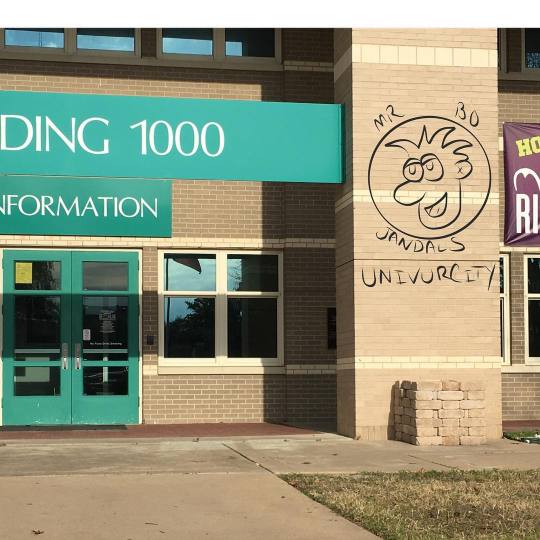
#mrbojandals #jandals #acc #accriverbats #riverbats #nrg #accnorthridge (at ACC - Northridge Campus)
0 notes
Text
Study Tips from the HSO
Dear friends,
You did it! It's Finals Week and that means the end of another semester. 🎓🎉
For our final blog post of Fall 2021, we wanted to re-share the HSO Leadership Team's study tips from the midterms. You might, we hope, find a gem or two (or three or four) in there. ;)
Jana McCarthy, Director of Advising
My study routine is based on years of tweaking and learning what works for me and what doesn't. I found my study style and early routine with the help of an Academic Coach, which is a resource I recommend for ALL students, but especially Honors students.
I start with my readings. I read and annotate in a heading-to-heading format. I start with the top-level heading, read the info, highlighting main ideas and things to note along the way. Upon reaching the next heading (sub level or any heading), I pause, and concisely note the highlights I made in that section - usually in a doc or in a spiral. At the end of the chapter, I have then made an outline of what I felt was important, which serves as a reference moving forward.
If there are lectures or videos to watch, or assignments to complete - that comes next. I put the notes in the same doc or just after the reading notes, so that it's all in one spot. Importantly, I use symbols and notations to ensure that I can easily locate specific items that I may need again.
I usually study in 1-hour blocks, with a 15 minute, mindless, break in-between. Mindless means that I'm doing something that won't override the material I'm trying to absorb: walk the dog, do the dishes, take a catnap - avoiding mental stimulation that will distract me from encoding the new material. The time I spend works for me, but others need more or less time studying or breaking. Find what works for you.
Finally, I always work on the material asap after a lecture or class meeting. Google: The Forgetting Curve, to learn why.
Mars Medina, HSO President
Studying for me is definitely challenging (wooo ADHD!) but I’ve found some ways to circumvent that.
Overall, first things first: I turn my phone over and put it out of sight! That is definitely my biggest distraction. Next, I make a list for the assignments or projects I need to work on/complete for either the day or for the rest of the week if I somehow have little to work on.
Working with different studying techniques, especially the Pomodoro technique, has worked well for assignment-heavy weeks. For notes I try to write them down by hand, as I found that writing it down instead of typing it usually results in me retaining the information easier. I’ve also found that index cards (for things like memorizing quotes or definitions) are a huge help.
Music helps me out too, to kind of drown out the rest of my environment; hilariously enough, I usually study to metal music but lo-fi is my second go-to! My biggest advice for studying, however, is this: make sure to take breaks!
Aaron Turner, HSO Social Media Team Lead
I'm pretty flexible when it comes to studying. Since each course is unique, I structure my approach in a "flowchart" sorta way (something I didn't know until I actually wrote it out here, lol).
First, I read each syllabus and compile all due dates from all courses into a single calendar. For each course, I then:
1. Get info on tests (Note: If there are no tests, I skip to Step 2)
1.a. Will test questions come from multiple sources or a single source?
If the professor confirms only one source (i.e. from lectures), I double down and study from just that source. That said, I always follow the professor’s lead.
1.b. If I'm studying from a textbook: I try to read ahead of the lectures; I highlight key concepts and say/write out my own explanations; I conduct multiple reviews leading up to the test.
1.c. If I'm studying from lectures: When attending the initial lecture, I listen to get acquainted and usually take few notes; I rewatch the recording and write down key concepts and info; I conduct multiple reviews.
2. For reading, writing, and researching (i.e. for a paper, presentation, homework, etc.)
2.a. I start EARLY and do a little every day.
For research, I use the ACC Library and other reputable websites; I highlight and save passages; I take notes while reading or watching videos; I keep track of my sources.
2.b. I ask questions; I go to office hours and seek tutoring when needed.
Amber Traylor, HSO Treasurer
Like many students, I can struggle to manage my time when trying to study or complete homework. What I’ve found works for me is a combination of two strategies:
1. I maintain an accurate calendar reflecting when assignments are due, when exams are, and what other activities I have planned on certain days. This helps to remind me what needs to be done on a given day and allows me to focus based on the order of importance, this is often called the Covey technique and involves ranking things from urgent, to not urgent, to not important.
2. I also use a variation of the Pomodoro technique when studying or doing work. I often find that around the 1-hour mark of working, my brain starts to lose focus and I seek out distractions. To maintain my productivity, I work straight through for 45 minutes and then take a 10-to-15-minute break. By breaking up my work, I can stay on task for several hours at a time. I also alternate my types of work between sessions; I may start on math, then rotate to science, and then switch to English before going back to math.
At the end of the day, you must make studying a priority while in college. Develop techniques that work best for you but look over these ideas to see if you like them!

We wish you all the best in all you do and look forward to seeing you again this spring! 🌷 💜
Your friends,
The HSO Leadership Team
#hsoblog#study#studying#studytips#studyskills#acchonors#accdistrict#accriverbats#success#studyresources#honorsstudents#hso#honorsstudentorg#austincommunitycollege#college#collegelife#college finals
6 notes
·
View notes
Text
ACC Honors Opportunity: UT YCS Fellowship & UT GEAR UP Internship
Hi Honors and Riverbat friends!
My name is Aaron; you may know me as the Social Media Team Lead for the HSO. Last spring, I had the pleasure to attend a valuable and life-changing series of workshops at ACC, hosted by The University of Texas at Austin. This week, it was announced that UT Austin and the ACC Honors Program have renewed their partnership to offer these workshops in 2022 as well. I’m talking of course about the UT Youth and Community Studies Fellowship and UT GEAR UP Internship—two opportunities uniquely available to Honors students at ACC.
Hosted by the Youth and Community Studies department of the College of Education at UT, the YCS Fellowship and UT GEAR UP Internship grant ACC Honors students the opportunity to explore a path in education and community leadership. By learning about identity—both their own and those of the people around them—YCS Fellows gain key insights into what it means to be an educator.
All Honors students at ACC are encouraged to apply. To do so, students of the Honors Program are asked to access their g.austincc.edu email account and locate the email from Dr. Anne-Marie Thomas entitled “ [Honors-Students] UT partnership with ACC Honors Program (plus paid internships)". There, you will find all links and details included.
Not only do you get to work with UT faculty and motivated students, but you also might discover your place within a community. It’s powerful stuff, the likes of which strongly influenced *every* participant with whom I personally had the pleasure to work, together as YCS Fellows. One of the students there alongside me last spring was none other than our own Mars Medina, HSO President.
I sat down with Mars to get their take on our experience together as YCS Fellows. Since Mars also participated in the UT GEAR UP Internship, I was particularly interested to know their holisitic insights. Mars’s responses to my prompts follow [transcribed from speech to text].
------------------------------------------------------------------------------
Me: How do you look back on your time as a YCS Fellow & UT GEAR UP Intern?
Mars: “I can’t say enough good things about the YCS [Fellowship] and UT GEAR UP Internship. It’s a wonderful experience, even if you aren’t an education major or looking to become an educator. It really teaches you ways to connect with students as a teacher and learn valuable insights into student identities. You learn [concepts] like community building circles, which not only teaches you about yourself but about other people and being able to foster community within those circles. You get a real good glimpse of what education is all about.”
Me: What was it like for you to learn under UT faculty?
Mars: “The teachers were fantastic. The educators that were with us for those workshops were committed to having us understand not just things about ourselves, but about students and education. It was a wonderful experience.”
Me: You were selected for the UT GEAR UP Internship. What was that like?
Mars: “Going into the UT GEAR UP Internship, that’s when you really get to put those skills to work: [You’re working] with UT staff and students for a week and [making] the [students’] education as thought-provoking as possible. It was wonderful to see things like social studies, P.E., writing—things that normally some students may not be necessarily good at and have kids engage with them. It truly is a glimpse at what teachers and educators are doing behind those screens.”
Me: What's your final takeaway from YCS and UT GEAR UP?
Mars: “It was such a wonderful experience. I highly recommend this program. It changed the way I look at my leadership skills and my role in a community.”
To learn more about Youth and Community Studies at UT, you may also visit their website. The deadline to apply as a YCS Fellow is December 12th at 11:59 pm. Participation as a YCS Fellow fulfills the leadership requirement toward becoming an Honors Scholar and grants eligibility to apply for the UT GEAR UP Internship in the summer.
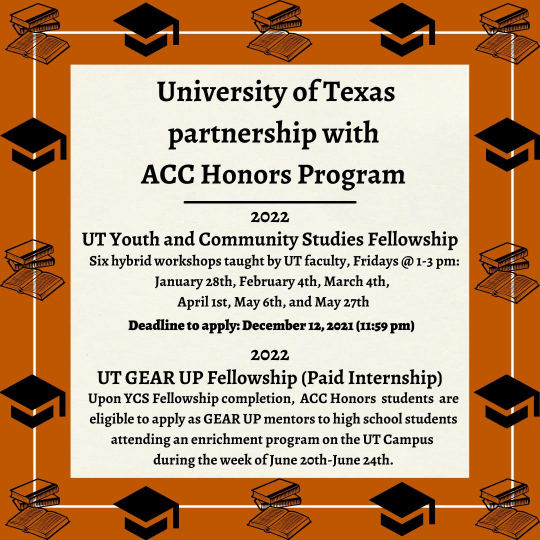
#ycsfellowship#utaustin#theuniversityoftexas#utgearup#youthandcommunitystudies#accdistrict#acchonors#accriverbats#college#collegelife#hsoblog#honorsstudentorg#student#austincommunitycollege
2 notes
·
View notes
Text
My Journey Learning German

Despite growing up in a monolingual household or perhaps because of it, I knew from a young age that I wanted to speak more than just English. To this day, I find myself in awe of the multilingual who, seemingly by magic, wanders in and out of different tongues as if scanning the radio. What new worlds are conveyed on those frequencies, what cultures? As soon as I could hold a pencil upright, I was spending my youth forever inventing new alphabets and my own infinitive phrases; yet it took me nearly two decades to not already abandon my linguistic passions by dinnertime.
I picked up German 11 years ago while failing out of college at 20 years old. Although I had never stopped being fascinated with communication (at that time I was a music major—music is its own language after all), I had indeed stopped attending class. I didn’t know it then, but I was in the throes of a Major Life Transition: caught between childhood doubt and adulthood self-discovery, I began to challenge what I thought I was capable of and, in particular, what language meant to me.
I was a college dropout with no plan when I purchased “Rosetta Stone: German” on a whim...
Now, I promise I’m not advertising for a product when I say that Rosetta Stone’s lessons immediately made me feel like a kid again. This was back before we had a plethora of convenient (and in some cases, free) alternatives like Duo Lingo on our smartphones. In any case, Rosetta Stone was immersive and I liked that. Pretty soon, I had developed a plan for learning each and every day—that last part being the most important:
1. Every day, I completed about an hour’s worth of lessons in the program.
2. Afterwards, I went back and wrote each sentence I had encountered in the program into a notebook.
3. Since Rosetta Stone is immersive and doesn’t (or didn’t when I used it at least) explain grammar, I augmented my understanding of the sentences in my notebook with reputable websites on grammar (such as https://yourdailygerman.com/ and https://learngerman.dw.com/en/grammar).
"I was a college dropout with no plan when I purchased “Rosetta Stone: German” on a whim..."
I did the above 3 steps each and every day until I had completed the entire program. While I was still nowhere near fluent, I was most definitely hooked. Using the same method I had developed with Rosetta Stone, I soon devoured other popular software including the Living Language and Pimsleur series, about 100 ephemeral apps and videos, and later, Duo Lingo. Within two years, I was conversational... but it still wasn’t enough.
I doubled down: I decided it was time to practice speaking with someone. Via an online search, I quickly found a German tutor, a native speaker, with whom I would meet as much as my humble bank account would allow (which meant about two hours of lessons per week). The progress was slow and often grueling, but over the following year, my skills vastly improved. I had just started to feel somewhat comfortable in the language as a daring thought came to mind: What if I looked for a German-speaking position? As I was still in between odd jobs, I figured it couldn’t hurt.
To my surprise, I quickly secured an interview for a German-speaking customer support role with a promising startup. Although my German initially wasn't developed enough for the position, they offered me an English-speaking role as well as one of the best proposals I’ve ever received: a desk near the German Team so I could practice with them. 6 months later, after daily practice speaking German with my new friends, I was promoted to the German Team, full time. Suddenly, the 8-hour workday had become my childhood dream. While my sentences weren't always perfect, I was now a fluent German speaker. This journey still remains one of my greatest accomplishments.
"... a daring thought came to mind: What if I looked for a German-speaking position? As I was still in between odd jobs, I figured it couldn’t hurt."
And yet life moves us in unexpected directions...
Serendipitously, my path eventually led me back into the classroom where I now pursue my Ph.D. in German and Linguistics. I hope someday to teach.
Still, I often miss the daily interaction with my coworkers and the amazing world of our shared language in the office. As a student, I find that dedicated “language time” doesn’t always make the daily cut on my to-do list. But it doesn't matter. Life is a creative process and language is always around us. Now, as I work part-time delivering food across town, I simply put on my German audiobooks and enjoy the pleasure of practice—a world to dive into.
In college, communication is key, both in language and in learning. In whatever world you find yourself, there are always new connections to be made.

-Aaron Turner, HSO Social Media Team Lead
#language learning#communication#german language#student#college#learning#learningtips#austincommunitycollege#acchonors#accdistrict#accriverbats#hso#hsoblog#honorsstudentorganization#honorsstudentorg
2 notes
·
View notes
Text
Study Tips from the HSO
It's that time again, fellow Riverbats and friends. You know the one: the weather is changing, the leaves are falling, and midterms are calling... 🎃🍁📝
Stirred by the crisp autumn air of a new season, the HSO Leadership Team is happy to share its personal study habits and insights! 📖📚
We hope you'll enjoy exploring these unique approaches toward learning and success. We'd love to hear your own. ✌

Jana McCarthy, Director of Advising
My study routine is based on years of tweaking and learning what works for me and what doesn't. I found my study style and early routine with the help of an Academic Coach, which is a resource I recommend for ALL students, but especially Honors students.
I start with my readings. I read and annotate in a heading-to-heading format. I start with the top-level heading, read the info, highlighting main ideas and things to note along the way. Upon reaching the next heading (sub level or any heading), I pause, and concisely note the highlights I made in that section - usually in a doc or in a spiral. At the end of the chapter, I have then made an outline of what I felt was important, which serves as a reference moving forward.
If there are lectures or videos to watch, or assignments to complete - that comes next. I put the notes in the same doc or just after the reading notes, so that it's all in one spot. Importantly, I use symbols and notations to ensure that I can easily locate specific items that I may need again.
I usually study in 1-hour blocks, with a 15 minute, mindless, break in-between. Mindless means that I'm doing something that won't override the material I'm trying to absorb: walk the dog, do the dishes, take a catnap - avoiding mental stimulation that will distract me from encoding the new material. The time I spend works for me, but others need more or less time studying or breaking. Find what works for you.
Finally, I always work on the material asap after a lecture or class meeting. Google: The Forgetting Curve, to learn why.
Mars Medina, HSO President
Studying for me is definitely challenging (wooo ADHD!) but I’ve found some ways to circumvent that.
Overall, first things first: I turn my phone over and put it out of sight! That is definitely my biggest distraction. Next, I make a list for the assignments or projects I need to work on/complete for either the day or for the rest of the week if I somehow have little to work on.
Working with different studying techniques, especially the Pomodoro technique, has worked well for assignment-heavy weeks. For notes I try to write them down by hand, as I found that writing it down instead of typing it usually results in me retaining the information easier. I’ve also found that index cards (for things like memorizing quotes or definitions) are a huge help.
Music helps me out too, to kind of drown out the rest of my environment; hilariously enough, I usually study to metal music but lo-fi is my second go to! My biggest advice for studying, however, is this: make sure to take breaks!
Aaron Turner, HSO Social Media Team Lead
I'm pretty flexible when it comes to studying. Since each course is unique, I structure my approach in a "flowchart" sorta way (something I didn't know until I actually wrote it out here, lol).
First, I read each syllabus and compile all due dates from all courses into a single calendar. For each course, I then:
1. Get info on tests (Note: If there are no tests, I skip to Step 2)
1.a. Will test questions come from multiple sources or a single source?
If the professor confirms only one source (i.e. from lectures), I double down and study from just that source. That said, I always follow the professor’s lead.
1.b. If I'm studying from a textbook: I try to read ahead of the lectures; I highlight key concepts and say/write out my own explanations; I conduct multiple reviews leading up to the test.
1.c. If I'm studying from lectures: When attending the initial lecture, I listen to get acquainted and usually take few notes; I rewatch the recording and write down key concepts and info; I conduct multiple reviews.
2. For reading, writing, and researching (i.e. for a paper, presentation, homework, etc.)
2.a. I start EARLY and do a little every day.
For research, I use the ACC Library and other reputable websites; I highlight and save passages; I take notes while reading or watching videos; I keep track of my sources.
2.b. I ask questions; I go to office hours and seek tutoring when needed.
Amber Traylor, HSO Treasurer
Like many students, I can struggle to manage my time when trying to study or complete homework. What I’ve found works for me is a combination of two strategies:
1. I maintain an accurate calendar reflecting when assignments are due, when exams are, and what other activities I have planned on certain days. This helps to remind me what needs to be done on a given day and allows me to focus based on the order of importance, this is often called the Covey technique and involves ranking things from urgent, to not urgent, to not important.
2. I also use a variation of the Pomodoro technique when studying or doing work. I often find that around the 1-hour mark of working, my brain starts to lose focus and I seek out distractions. To maintain my productivity, I work straight through for 45 minutes and then take a 10-to-15-minute break. By breaking up my work, I can stay on task for several hours at a time. I also alternate my types of work between sessions; I may start on math, then rotate to science, and then switch to English before going back to math.
At the end of the day, you must make studying a priority while in college. Develop techniques that work best for you but look over these ideas to see if you like them!
Here's to a great 2nd half of the semester! 😎 👍
Visit the Academic Coaching Team's Online Study Resources for additional tips (+materials and study guides).
Happy Studying and Succeeding,
the HSO Leadership Team
#hsoblog#study#studying#studytips#studyskills#acchonors#accdistrict#accriverbats#success#studyresources#honorsstudents#hso#honorsstudentorg#austincommunitycollege#college#collegelife
2 notes
·
View notes
Text
'Where' Not 'When': The Power of Showing Up
There are times when it’s hard to show up.
Story 1: At 23, I dropped out of college, never to return. But despite the sort of abruptness insinuated by the words “dropped out,” the reality of it had in fact been a long time coming. Somewhere starting in my teens, I had gradually begun to lose my self-confidence as a student until there was hardly any left with which to enroll. Once I got to college, I felt doomed to press on "just because"... until I stopped "pressing on" (attending) and failed out.
Story 2: 7 years later, on an early morning in June of 2020, I opened my laptop to a sea of faces dotting the flat boxes of Zoom. One by one, across each countenance, I quickly discovered my own expression of uncertainty. An expression that said, “I’m still wearing pajamas at the kitchen table, and the world is on fire.” I was 30 and attending my first History class in 10 years, during a pandemic. I didn’t know it yet, but I had already succeeded.
So, what's happening with these anecdotes?
The best advice I’ve ever been given is to “show up.” Of course, we can’t attend everything in life—we have to choose. In my late teens and early twenties, by a mix of self-doubt and youthful abandon, I made choices that didn’t serve me. I chose writing songs over essays and watching movies over lectures. Such were the choices that eventually led to me dropping out of college. Still, it would be a disservice to label them as “wrong.”
When people speak of “showing up,” they mean that it’s important to devote one’s time wisely. Wherever you go, there you are; and that’s not just a book title on meditation (good stuff btw), it’s the literal truth. Life is a series of constantly showing up—there’s no hiding. What matters is knowing where to show up... 'where', not 'when.'
Dropping out of college at 23 didn’t ruin my life, but it did delay parts of it. Once I realized where I wanted to be, I simply started making appearances there. I returned to college at 30 because I had learned my surroundings. While I continue to be proud of this roadmap in my mind, one I didn't have in my youth, I remain aware that there is no arriving: our triumphs are not destinations but just the beginnings of more beginnings.
In my time both within and without the classroom, I've learned that truly knowing where I am is what leads to community, to connection. When we feel discouraged, it's showing up that pulls us out.
I'm grateful to be here.
-Aaron Turner, HSO Social Media Team Lead
#student#college#austincommunitycollege#acchonors#accdistrict#accriverbats#hso#hsoblog#honorsstudentorganization#honorsstudentorg#motivation#success
0 notes
Text
What Does it Mean to be an Honors Scholar?
Along with many other ACC students this semester, I received an email announcing the start of the Honors Scholar tier and began to panic about making sure I met all the requirements. As silly as it sounds, the GPA is the easy part. Anytime you think of the Honors Program, a high GPA is a given, but what about the other parts? I knew I needed to get the endorsement on my diploma, and like every other student, I wanted to be eligible to apply for the Honors Scholar Scholarship.
The first requirement seems easy enough in theory, complete nine hours of Honors course credit. As someone that has taken and completed two honors courses, it’s not quite that simple. Honors courses are amazing, I love the close-knit Honors community in the classes and the individual attention from the professors, but make no mistake, these classes are a challenge. You will be doing a lot of reading, writing, and studying to make it through the semester. I’m not trying to dissuade anyone from doing, you absolutely should. However, don’t just take any Honors course simply because it is an Honors course, choose something you’ll enjoy dedicating time to.
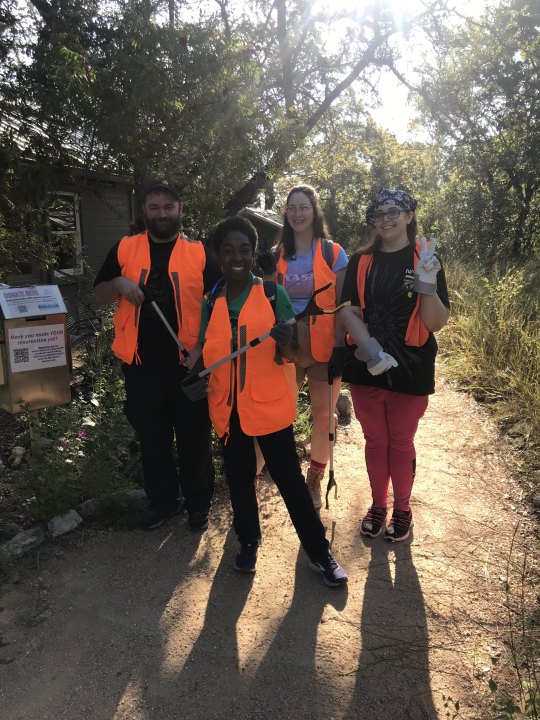
The leadership requirement was probably the most intimidating aspect of the Honors Scholar requirements. Although I enjoy being involved in my academic community, I had never tried to lead. Luckily enough, I had been offered the opportunity of serving as interim Treasurer of the Honors Student Organization for the Fall 2021 semester. It was and has been scary! There are a lot of added responsibilities when you take on an officer position of a student organization. However, it has been extremely rewarding. If you ever have the opportunity, then you should go for it. I have learned so much from my fellow officers and from the members of our organization. Plus, it has been so much fun getting to know people and creating experiences for our members.
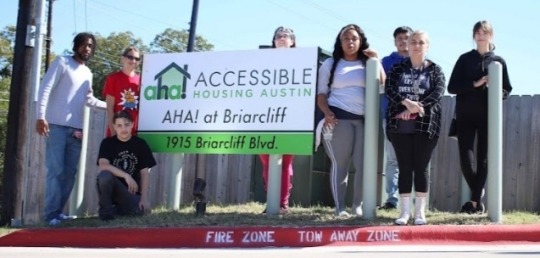
Probably the easiest and most fun part of the Honors Scholar tier is volunteering. I absolutely adore getting involved and helping my community, so this was a no-brainer. This semester I have worked with so many amazing organizations: Accessible Housing Austin, Central Texas Food Bank, Wild Basin, Zilker Botanical Gardens, and Prison Abolition Prisoner Support. Obviously, you must work with ACC non-profit partners to earn your 12 hours of service, but the Honors Program makes it easy. One click and you’re taken to a list of everyone you can worth through to get hours and it is truly rewarding to get involved.
If you’re on the fence about becoming an Honors Scholar, I say you should go out and do it. You’ll love the experience and it’ll only help you throughout your educational and career journeys. If you ever have doubts, feel free to reach out!
-Amber Traylor, HSO Treasurer
#student#college#austincommunitycollege#acchonors#accdistrict#accriverbats#hso#hsoblog#honorsstudentorganization#honorsstudentorg#community#honorsscholar#honorsscholarship#teamwork#service
0 notes
Text
Welcome & Introduction: HSO Vice President
Hello everyone!
My name is Oliver (he/they). I am the new Vice President of the HSO. I am also a current student at Austin Community College, working towards acquiring a degree in Biology (with a minor in Chemistry). I am a member of ACC’s Alpha Gamma Phi chapter of Phi Theta Kappa and the Five Star Competitive Edge committee chair. I have been a paramedic for about five years, and I currently work for the city of Austin. I have a thirteen-year-old German Shepherd mix named Maxx, and we live together here in Austin, where both of us were born and raised. After feeling frustrated at my limited ability to help people with my current licensure as a paramedic, I decided to return to ACC. I have a powerful drive and passion for equity and the elimination of barriers to accessing medical care. It is my dream to further my education to better work towards eradicating the obstacles that prevent people from receiving compassionate and respectful medical care. This same passion carries over to my school work, which has led me to my positions within the HSO and PTK groups.
I am very excited to join the team and to have the opportunity to meet and work with you all. Thank you for electing me to represent you in this position. I will do everything in my power to make sure you all feel your voices are heard and that the HSO is meeting your needs and expectations.
-Oliver Kipp, HSO Vice President

0 notes
Text
Information Session: Honors at ACC
Hey everybody! Mars here. In case anyone missed these fun information panels that the Honors Ambassadors held for the Honors Program, allow me to help you out and explain some key points about ACC’s Honors Program!
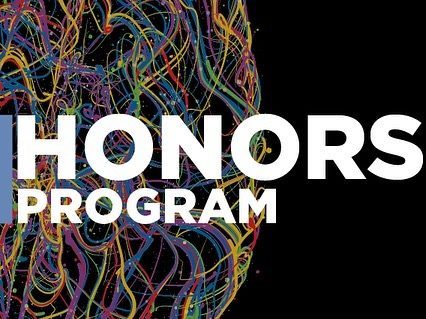
First things first, we are not Phi Theta Kappa. I repeat: we are not PTK. I think that’s the biggest question we in the Honors Program get from inquiring students. The Honors Program functions as a set of courses for students to take in place of their core curriculum (these will reflect on your college transcript by the way! So universities know you’ve taken Honors courses), while PTK functions more as an Honors society (that is recognized across the country! Most transfer applications will ask if a student is a PTK member.)
What sets Honors classes apart from non-Honors classes is one, the class size. Honors classes have only fifteen seats per class; this way, it’ll allow professors to hone in on each and every student in the class and really get to know everyone throughout the semester. Another distinction is the subject material. While it still covers the same material, Honors classes allow for professors to focus on one specific subject in correspondence with the course. For example, the Honors Program offers many English Composition classes - but one class will focus on Magical Realism, while another focuses on Science Fiction. These classes are submitted by professors, so once you start a class, you know you’ll be learning the material from a professor that is heavily invested in what they’re teaching.
Another question the Honors Program gets is this: does it cost anything to get in? Do classes in the Honors Program cost more than non-Honors classes? And the answer is no! There are no extra fees associated with both getting accepted into the Honors Program or registering for Honors classes.
There are some requirements to getting accepted into the Honors Program, you can find those here.
Besides the classes I’ve mentioned above, another great benefit for joining the Honors Program is all the wonderful opportunities that the program offers. They are:
Service & Transfer opportunities
Honors Advising
YCS Fellows: offered in the spring, in collaboration with UT Austin, select Honors students will attend free workshops with professors from UT’s College of Education to expand their knowledge in youth and community studies. Once completing the program, YCS Fellows will also be offered a chance to participate in the UT GEAR UP internship during the following summer
UT GEAR UP internship: if selected, Fellows will be able to showcase what they’ve learned and spend a week helping UT professors teach exciting subjects to students! (Did I mention that it’s a paid internship? 👀)
Honors Scholar Tier: newly implemented, this tier reflects a student’s willingness to enhance and expand their Honors experience; once they are a Scholar, students receive recognition on their transcripts and honor cords for graduation ceremonies
Honors Scholarship: exclusive to Honors Scholars, this scholarship is offered to a select number of students every spring to help with ACC tuition, textbooks, fees, or other education expenses
Honors Ambassadors: comprised of students, this internship will allow you to engage in student outreach and recruitment, as well as being able to work with Student Services, host events like Honors Week, create podcasts and videos, and support organizations like the HSO.
Honors Student Organization: and last but not least, students will be able to join the HSO! This organization holds a special place in my heart. I wonder why. 😉 The HSO allows Honors students to engage with their community of fellow students, attend fun events, engage in leadership opportunities, and thrive in a diverse intellectual environment.
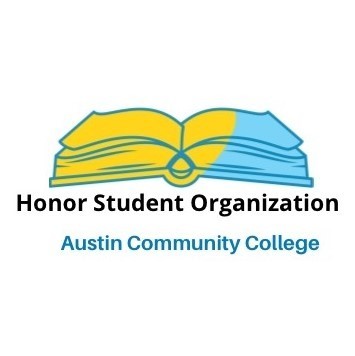
In case students have any questions, though, feel free to reach out! The Honors Program is always on the lookout for enthusiastic students and is ready to welcome any and all!
-Mars Medina, HSO President
#hsoblog#acchonors#accdistrict#accriverbats#honorsprogram#student#studentblog#austincommunitycollege#honorsstudents#hso#honorsstudentorg#college#collegelife
1 note
·
View note
Photo

#acchighland #riverbats #acc #accriverbats #jandals #mrbojandals (at ACC Highland Campus)
0 notes
Photo

#jandals #mrbojandals #acc #accriverbats #riverbats #acchighland (at ACC Highland Campus)
0 notes